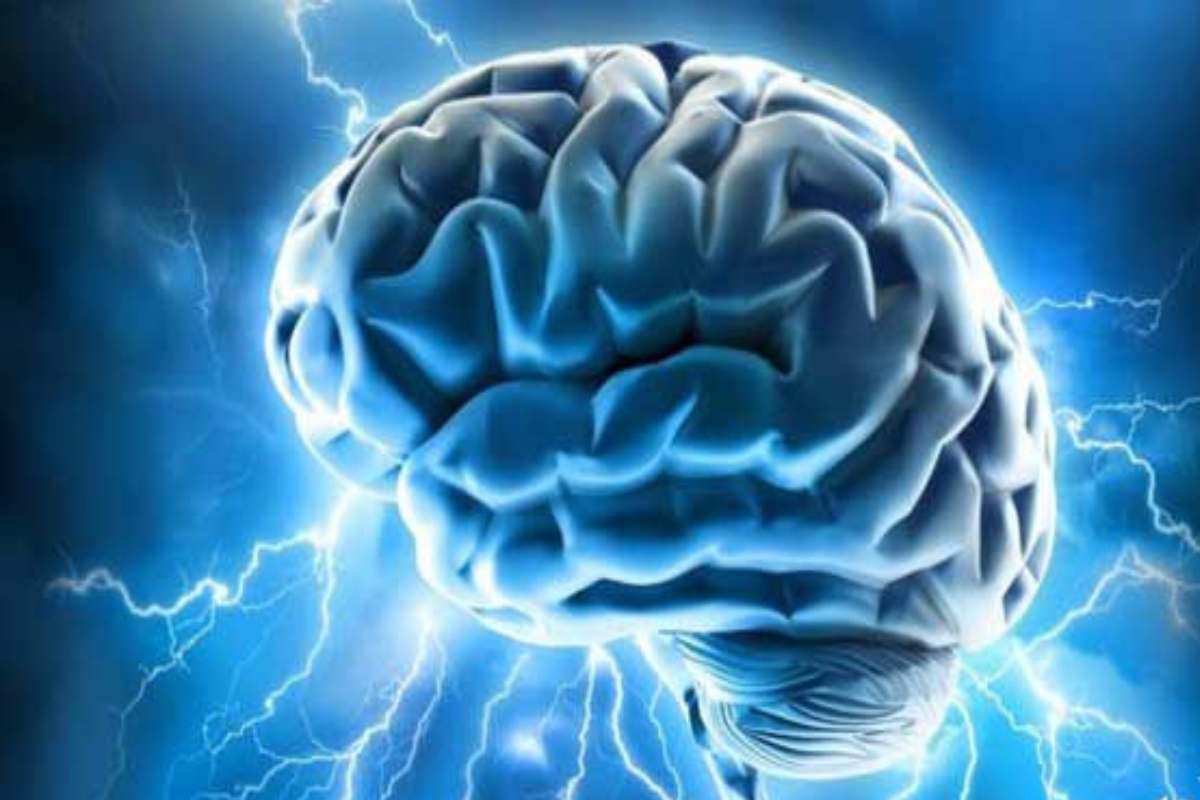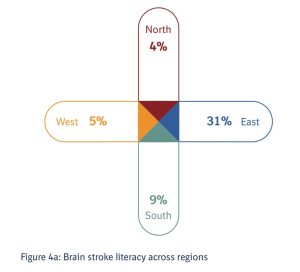Brain-stroke incidents are rising. What is a brain stroke? What are the symptoms? As every minute is vital, how can we detect it immediately?

Very few are aware of the symptoms of a brain stroke even in major South Indian cities (Creative Commons)
A recent survey on awareness about brain stroke in urban India showed people’s familiarity with its symptoms and risk factors was very low, especially in the South Indian cities of Bengaluru and Hyderabad.
The nationwide survey, released recently, was done by Indian pharma company Boehringer Ingelheim.
More than 4,700 people aged 25-60 across 12 cities — including metros such as Bengaluru, Hyderabad, Chennai, Ahmedabad, Delhi, Mumbai, and Pune — were interviewed about brain stroke.

Survey results showing awareness of people about a brain stroke in all four regions of the country (Supplied)
The survey showed that six out of 10 people in metros in the South were aware of the term “brain stroke”, while that number was nine out of 10 in cities in the East.
When it came to the awareness of symptoms of brain stroke, two out of 10 respondents nationally knew about it.
In the Southern metros, however, fewer than one out of 10 were aware of the symptoms, with the numbers particularly low in Hyderabad and Bengaluru, the survey said.
Similarly, not many were aware of the risk factors associated with a brain stroke, such as smoking and high cholesterol.
Nationally, 23 percent knew about the risk factors, but it was only 14 percent in Chennai, 11 percent in Bengaluru, and a paltry 3 percent in Hyderabad.
Neurologists explained that brain stroke was a serious medical condition and could lead to several disabilities.
Dr NK Venkataramana, neurosurgeon and founder of the Bengaluru-based Brains Hospital, told South First: “In a brain-stroke situation, every minute counts. A minute’s delay means 2 million cells are dying.”
He added: “A patient who has suffered a stroke is losing one part of himself with every single minute that is wasted. Timely treatment can reduce the damage, and for this, awareness of the disease is important.”
Dr Shraddha Bhure, Medical Director of Boehringer Ingelheim, India, which aims to raise awareness around this serious condition, said: “In a country like India, the number of brain-stroke cases is on the rise. This makes it very important that awareness around it is created. Only if a person is aware can they be treated timely.”
If this was the situation in big cities such as Bengaluru and Hyderabad, what would the state of awareness be in rural areas, neurologists wondered.
The doctors said that there are a few hospitals in South India that have dedicated personnel along with a team of neuro-interventionists who can understand the urgency of performing brain procedures as soon as the patient comes to the hospital.
They added that state governments should ensure knowledge about brain strokes among not just the people but also the medical and paramedical staff.
A method of “DRIP & SHIP” is what they recommend.
Venkataramana said, “Every peripheral hospital should have clot-dissolving injections (known as DRIP), which can be given in such cases, and then the patient should be shifted to the stroke centre (SHIP) to perform further surgeries. This method can save lives within the Golden Hour.”
A brains stroke is a haemorrhage or a blood clot in a blood vessel of the brain that could lead to a stroke in the organ.
If any of the above symptoms are seen, perform the F.A.S.T test.

Jul 26, 2024

Jul 26, 2024

Jul 26, 2024

Jul 26, 2024

Jul 26, 2024

Jul 26, 2024